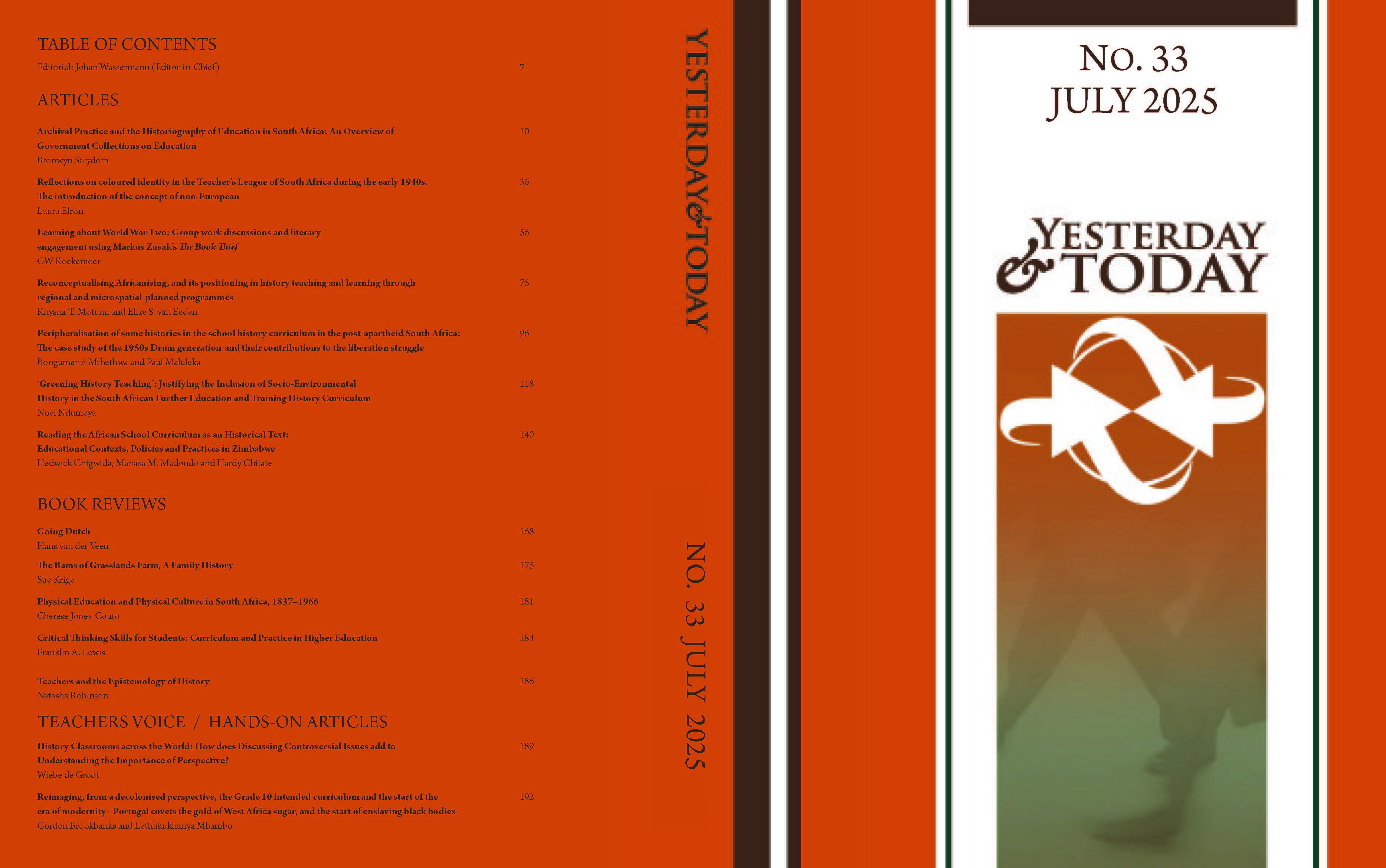‘Greening History Teaching’:
Justifying the Inclusion of Socio-Environmental History in the South African Further Education and Training History Curriculum
DOI:
https://doi.org/10.17159/2223-0386/2025/n33a7Keywords:
Anthropocene, Climate Change, History Teaching, Socio-Environmental History, StewardshipAbstract
This position paper argues for including socio-environmental history in the South African Further Education and Training (FET) history curriculum. It is premised on the fact that planet Earth is in the age of the Anthropocene, within which humans have had a dominant effect on the planet and have contributed fundamentally to climate change, which is noticeable through extreme weather events, such as erratic rainfall, floods, droughts, heatwaves and wildfires. These have led to extreme hazards, including destruction of infrastructures, large-scale migrations and loss of lives. Climate change aside, humanity is also facing problems of air and water pollution, deforestation, desertification, famine and diseases; in fact, we still have traumatic memories of the COVID-19 pandemic, which destroyed livelihoods and to date, has left more than seven million people dead worldwide. This paper is based on a desktop qualitative research method and draws from secondary and primary literature on socio-environmental history. Furthermore, it analyses the Curriculum Assessment Policy Statement (CAPS), focussing on the FET history curriculum. The study builds on the intersectionality and all-inclusive ecologies of knowledge approach to demonstrate that socio-environmental history intersects with other history topics already part of South Africa’s CAPS FET history curriculum. The paper argues that, through the infusion of socio-environmental history content into this curriculum, history teaching will contribute more meaningfully toward learners’ understanding of the socio-environmental challenges confronting humanity in South Africa and beyond. This will provoke learners to raise questions regarding the nexus between people and nature, and interrogate how this shapes the local, regional and global environments and the results thereof, in the process, inculcating positive attitudes and values about stewardship of planet Earth.


